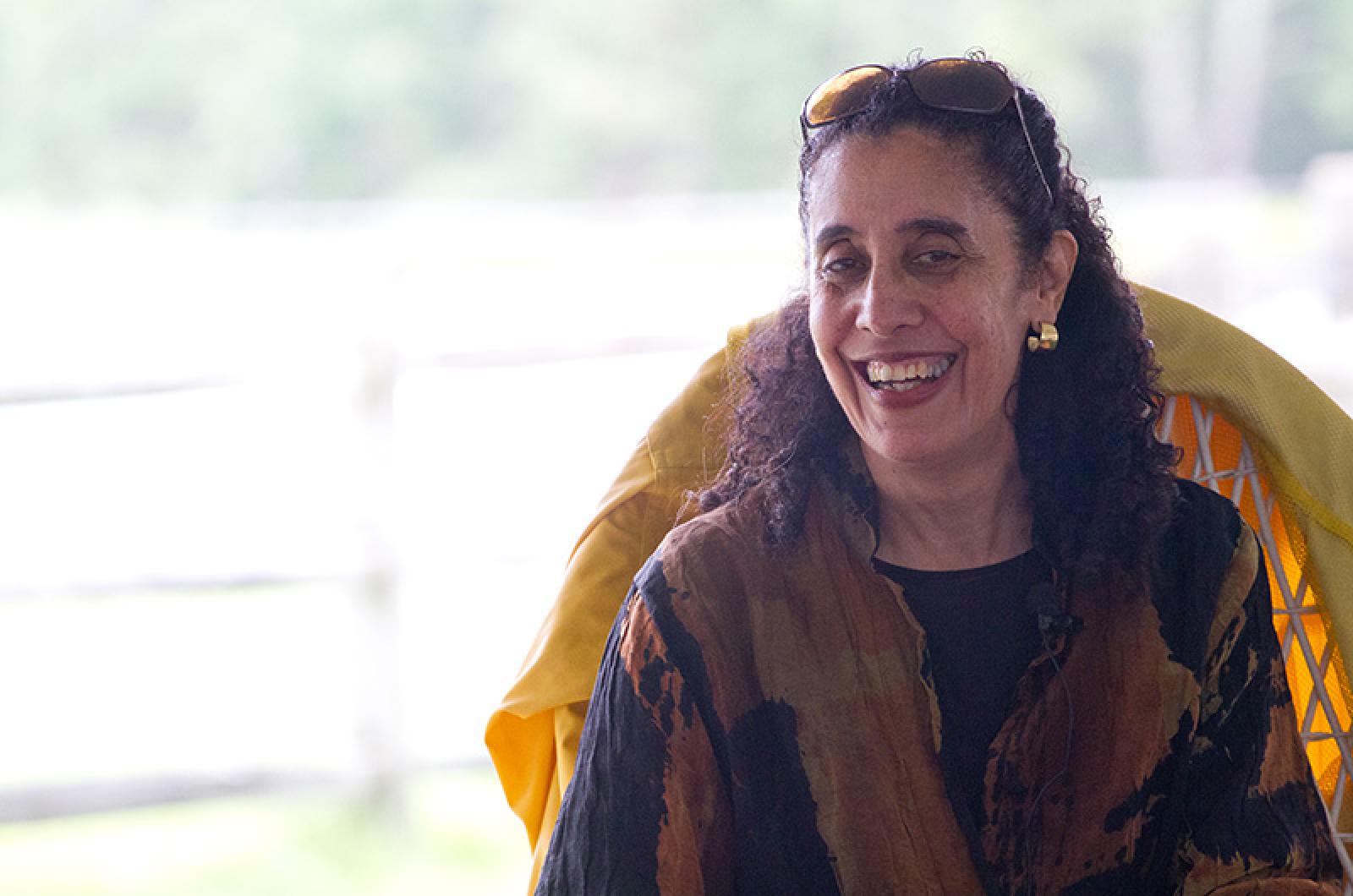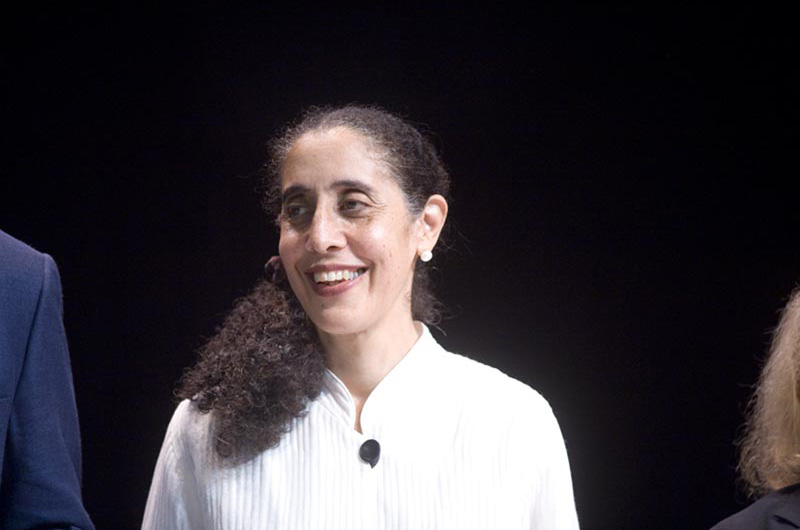Lani Guinier, the pioneering law professor and voting rights activist who died Jan. 7, had long family ties to the Vineyard, where she had owned a home.
Ms. Guinier was 71.
A legal scholar, educator, author and public intellectual, she was devoted to democratic fairness and equity especially as it relates to voting rights. Over the decades she took part in numerous panels and discussions on the Vineyard, including one in 2004 at the Old Whaling Church titled Brown vs. Board of Education: Mission Accomplished? The event introduced a young senator from Illinois named Barack Obama.
“We need to learn to talk about race and class in the same sentence, or we will be here 50 years from now talking about the same question,” Ms. Guinier said at the event.
A fierce advocate for voting rights, she took part in an NAACP voting rights forum held in 2012 on lawn of Jacqulyn Shropshire’s home in West Tisbury. The talk was entitled Hijacking Democracy.
“The United States seems to believe, at least in many of these states, that they want the fewest number of people to come and vote so they can control that group of people and make sure those people are comprised of their supporters,” she told the audience.
Ms. Guinier made headlines in 1993 when President Bill Clinton nominated her to become Assistant Attorney General of the United States for Civil Rights.
The appointment was later withdrawn after Ms. Guinier came under fire from conservatives during the confirmation process for her progressive views on voting.
But for Ms. Guinier the assignment represented perhaps the most coveted public service opportunity she could have sought in her career.
She earned her undergraduate degree at Radcliffe College and her law degree at Yale University. Following law school she clerked for Judge Damon Keith in the U. S. District Court in Michigan. She spent a year working with juvenile offenders in Detroit before heading to Washington to serve as special assistant to Assistant Attorney General Drew Days in the civil rights division.
At the NAACP Legal Defense and Educational Fund she led the Voting Rights project for much of the 1980s.
Her son Niko Bowie, an assistant professor at Harvard Law School, said of his mother’s experience with Congress: “My mother taught me from a very early age the meaning of courage. She taught me that a principle is far more important than any position that someone can give you.”
Some months after President Clinton’s nomination evaporated, she was invited to join the faculty at Harvard Law School. In 1998 she became the first African American woman to receive tenure there.
Ms. Guinier continued to write, speak out and develop creative solutions to complex issues of race and democracy, through many books and articles. Guy-Uriel E. Charles, the Charles Ogletree Jr. professor of law at Harvard, said: “Lani was one of the most creative and forward thinking scholars of democracy. She was always many years ahead of her time. She saw both problems and solutions long before everyone did.”
In 2009, speaking at a benefit at Farm Neck Golf Club for the nonprofit organization Brotherhood/Sister Sol, she gave an impassioned speech using the controversial arrest of fellow Harvard professor Henry Louis (Skip) Gates Jr. as an example of the stark racial inequality that still exists in this country.
“The only instrument of urban social policy that this country has pursued with vigor in the last 40 years is mass incarceration,” she said. “The school to prison pipeline is not an accident.”
In 1986, Ms. Guinier married Nolan Bowie on the lawn of the family cottage on Winemack street on East Chop. Judge Damon Keith presided.
Dorothy West wrote about the ceremony in her Gazette column.
“Guests arrived from around the country and across the seas,” Ms. West wrote. “Then Arkansas governor Bill Clinton and his wife Hillary, Yale Law School classmates of the bride, were present. Bill Coleman, son of former cabinet member William T. Coleman, as well as Roger Wilkins, nephew of the late Roy Wilkins, were also there with their respective wives.
“Children abounded, from a two-week-old infant through the scale of running and laughing and wonderfully healthy children, all looking so well cared for, all appearing so well loved. The guests in their variety were a microcosm of what it should be like, each one accepting the other with the joy of reunion or the pleasure of first meeting, the outward differences of no matter.”
Ms. Guinier’s life’s work converged with Ms. West’s commentary about how people should be treated in society.
Tomiko Brown-Nagin, dean of Harvard’s Radcliffe Institute for Advanced Studies, added her own commentary on her friend:
“She should be remembered for her unfailing commitment to a vision of equality, opportunity, and democracy where all are empowered to speak, to lift their voices and to participate.”





Comments (7)
Comments
Comment policy »